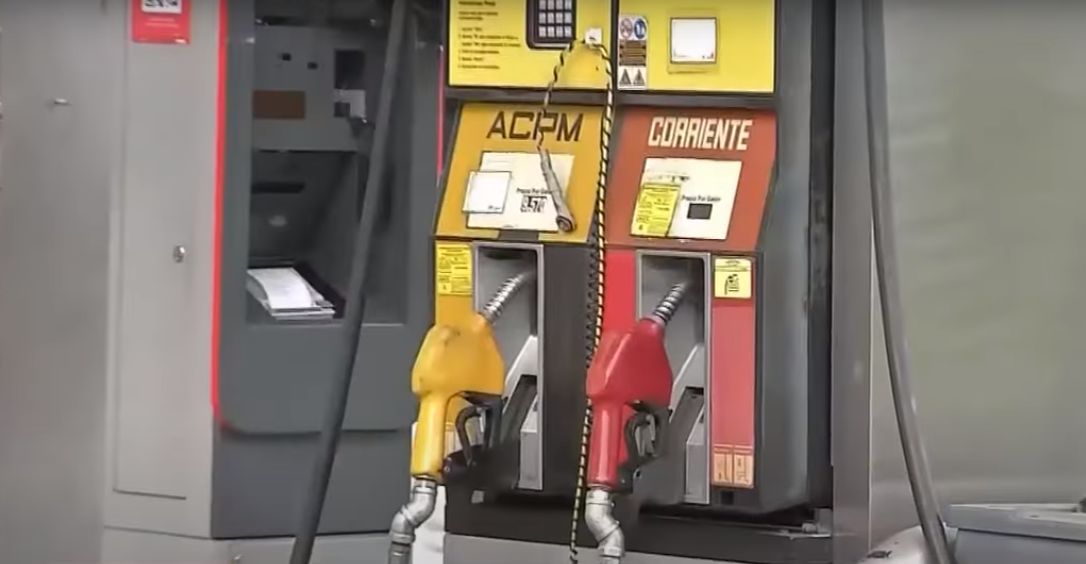Gas stations have no way to apply differential diesel charging to high-end pickup trucks.

After the National Government, through the Ministries of Finance and Mines and Energy, published the draft decree seeking to implement a differential pricing mechanism for diesel, the Confederation of Retail Fuel and Energy Distributors (COMCE) stated that service stations have no means of implementing such controls, since the measure is "operationally unfeasible " and lacks adequate regulations or coordination.
The measure comes in response to the high deficit levels of the Fuel Price Stabilization Fund (FEPC), which, according to the Ministry of Finance, reached 10.6 trillion pesos in 2024 and could reach 8.1 trillion pesos in 2025 due to diesel.
The measure, which will apply to private, diplomatic, and official vehicles such as cars, SUVs, pickup trucks, and four-wheelers that run on diesel, requires a consensus, according to David Jiménez Mejía, president of the union.
"We believe this proposal is unviable to implement if it requires service stations to charge a differential price for high-end pickup trucks. Currently, stations purchase diesel from wholesale plants at a single price. What would the operation be like if two prices were now established? How can we control customers and their consumption frequency?" Jiménez questioned.
The union leader noted that Colombia has more than 6,400 service stations that make up the national fuel supply network. According to him, imposing this measure without dialogue with the sector could generate distortions and economic losses, as occurred during the truckers' strike in September 2024.
"The government reversed a diesel price increase of more than 1,900 pesos per gallon after having decreed it early Saturday morning. Many stations bought at a higher price and then had to sell below cost , generating losses of more than 20 billion pesos."

Gas station in Bogotá. Photo: Citytv.
The union has also spoken out about the creation of priority or differentiated zones in approximately 65 cities across the country where the new diesel pricing scheme would be applied.
"From the outset, what we can see with this draft decree is that, in an effort to differentiate the vehicle fleet in order to charge a higher differential price for diesel, prioritized or differentiated zones are being created to effectively implement this measure," Jímenez emphasizes.
The draft stipulates that the differential price stabilization mechanism will apply to Bogotá and some municipalities in Antioquia, Atlántico, Bolívar, Córdoba, Cundinamarca, Magdalena, Risaralda, Santander, Tolima and Valle del Cauca .
According to the Ministry of Mines and Energy, the elimination of the subsidy will initially be implemented in the country's main cities and metropolitan areas—such as Bogotá, Medellín, Cali, Barranquilla, and Bucaramanga—which together account for 72 percent of the target vehicle fleet and 37 percent of diesel consumption of this type.
The union warns that the proposed bill, which proposes applying different prices per gallon of diesel depending on the type of vehicle, would have complex practical consequences for the daily operation of service stations.
"We at the service station industry are concerned about the creation of these prioritized or differentiated zones. This will mean that in certain regions there will be a set price per gallon of diesel, and in others, a differentiated price depending on the type of vehicle."
Furthermore, until the Ministry of Mines and Energy issues a resolution regulating the operation of the mechanism, the measure has no practical legal effect.
"Until the Ministry of Mines and Energy regulates how this differentiation mechanism operates in the fuel distribution chain, the measure will not apply ," he said.

fuels. Photo:
The president of Comce reiterated that the union is willing to engage in dialogue and cooperation with the government, but warned that clear, agreed-upon regulations are required to allow any price adjustments to be implemented without generating confusion or losses:
"We understand the government's proposal, but we must note that these types of ideas are not new, and their implementation can entail enormous difficulties without dialogue within the sector," the executive said.
In turn, Julio César Vera, president of the Xua Energy Foundation, supported the measure's objective, but warned of the challenges of implementation.
"The difficult part will be its implementation and monitoring, because it would require the use of technology, software, hardware, additional personnel, and user registration. These elements would take between six and nine months to implement," Vera explained.
He also stressed that, while the ad hoc approach is fairer in principle, gradual, general measures may be more cost-effective and administratively feasible.
Comce reiterated that the stability of the fuel sector and the well-being of end consumers must be the priority when designing changes to the country's tariff schemes. Meanwhile, the union will continue evaluating the draft decree to submit formal observations to the relevant bodies.
According to the Ministry of Mines and Energy, the decision seeks to rationalize public spending and target energy subsidies toward the most vulnerable sectors.
"It is estimated that by eliminating the subsidy for cars, trucks, SUVs, and ATVs used for private, official, and diplomatic purposes, the State could achieve fiscal savings of nearly 386 billion pesos annually," the Ministry of Finance said.
The objective of the portfolios is to reduce the growing fiscal deficit of the FEPC.
More newseltiempo





